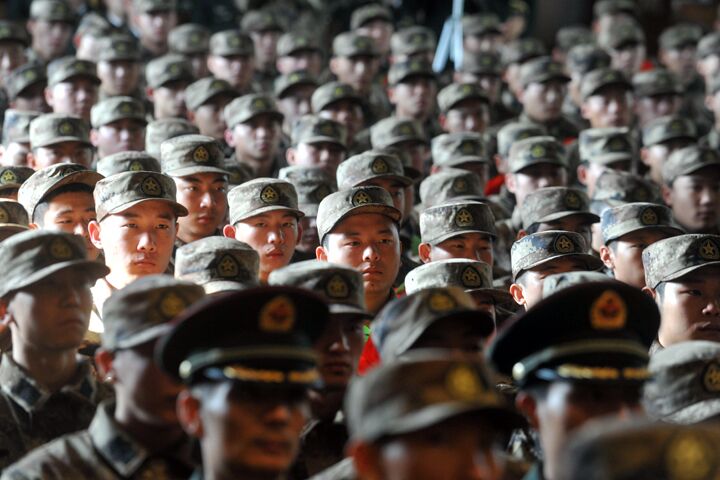
China’s Military Spending Set to Exceed the Rest of Asia Combined
China’s military spending will double by 2015, swelling it to more than the combined defense budgets of the rest of the Asia Pacific, according to a new report. The news is expected to intensify anxiety among China’s neighbors and rivals.
According to global research group ihs, by 2015, Beijing’s military budget will double from its 2011 amount of us$119.8 billion to us$238.2 billion. That is more than the us$232.5 billion spent by Asia’s 12 chief military powers, including India and Japan. By 2015, China’s military budget will be four times greater than that of second-place Japan.
Sarah McDowall, head of ihs Global Insight’s Asia Pacific desk, said the anticipated annual rate of increase of 18.75 percent will “intensify concern among various governments” in the Asia Pacific region.
“The political interplay is complex. Perhaps most importantly, it has prompted Washington to undertake a diplomatic campaign to reassert its profile in the Pacific … and to maintain a situational awareness of China’s military development,” McDowall said.
From 2000 to 2009, Beijing has reported defense budget increases averaging 12 percent annually, but analysts believe the actual increases are substantially more than China reports. GlobalSecurity.org explains: “China’s defense spending is by no means transparent. China’s published defense budget does not include large categories of expenditure, including expenses for strategic forces, foreign acquisitions, military-related research and development, and China’s paramilitary forces.”
ihs’s Asia Pacific chief economist Rajiv Biswas said China has been able to ramp up its military spending because of its economic strength. “Beijing has been able to devote an increasingly large proportion of its overall budget towards defense and has been steadily building up its military capabilities for more than two decades. This will continue unless there is an economic catastrophe. Conversely, Japan and India may have to hold back due to significant economic challenges,” Biswas said.
The release of the ihs report was timed to coincide with a visit to the United States by China’s nearly certain president-in-waiting Xi Jinping. Xi and other Chinese leaders have expressed concern about Washington’s decision to realign its military strategy to focus on the Asia Pacific region, saying China’s military expansion poses no threat to its neighbors.
But the actions of China’s neighbors reveal that they do feel threatened by China’s military rise.
India, for example, has in recent weeks obtained a nuclear-powered submarine, moved to acquire its first aircraft carrier, and announced plans to buy 126 French fighter jets. This spate of military upgrades is designed to help India counter China’s rise. “Of late, there has been a realization (in India) that China is the real danger of the future,” said Gurmeet Kanwal, director of New Delhi’s Center for Land Warfare Studies.
The increasing military spending by India and other Asian states is a worried reaction to China’s amassing of military power. But Bible prophecy reveals that all of Asia’s military might will soon be pooled together to form a colossal Eastern military bloc. To understand more, read Russia and China in Prophecy.
